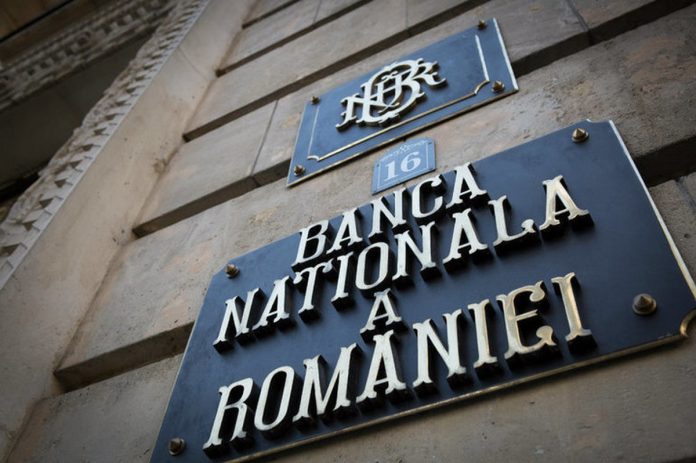The current level of inflation in Romania of 9.9 percent is very high, however, overall, by December 2026, inflation should decrease to approximately 3.5 percent, provided full implementation of the fiscal package, including the freezing of wages in the public sector, Chief Economist of the National Bank of Romania (BNR) Valentin Lazea stated on Wednesday within the Impact Bucharest 2025 event.
„I must say that the current level of inflation of 9.9 percent, which is very high, is largely due to the liberalization of electricity prices, which contributed by 2.2 percentage points to the increase in inflation, the VAT increase, which contributed by 1.6 percent to the increase in inflation and the increase in excise duties, which contributed by 0.4 percent to inflation. Thus, these three measures, which were unavoidable for the Government in order to reduce the deficit, contributed to a 4.2 increase in inflation. We must be patient as a nation and wait the next 12 months until this effect fades, because in August, next year, the effect of these three measures will disappear, and inflation will fall sharply to around 4 percent. People must be patient, to understand that it will become more bearable. Another shock will follow in April 2025, when gas price liberalization will take place, and the impact will probably be of approximately 0.6 on the increase in inflation. But, overall, by December next year, inflation should drop to approximately 3.5 percent, provided the full implementation of the fiscal package, including the freezing of wages in the public sector. And because economic growth is so close to zero, no one wants to be blamed for pushing economy into recession,” Lazea said.
On the other hand, the BNR official showed that the tariffs imposed by the US will determine an annual GDP drop of approximately 0.2-0.3 percent, not very significant in his opinion.
„We are living in unfortunate times, with rising tariffs and a deglobalization trend taking shape. But, like all other EU countries, Romania faces 15 percent US tariffs on all products except steel and aluminum, for which tariffs are 50 percent. In our case, this will lead to an annual GDP decline of approximately 0.2-0.3 percent per year, which is not very significant, while the impact of tariffs on inflation could be negligible, because imports from the United States will not face higher tariffs. In this regard, I would like to praise the approach of Ms Ursula von der Leyen and the European Commission, who have been heavily criticized. Imagine what would have happened if a tariff war had begun with the US administration. In the current context, I believe that an enhanced cooperation of Romania with the EU states is the only possible response against the opposition of nationalists and populists. As for the defence sector, Romania is revitalizing its defense industry through cooperation with various key players. For example, with the Turkish company Otokar for armored vehicles, the Italian company Leonardo for Spartan air transporters, the German company Rheinmetall for gunpowder, as well as for drones and so on. I believe this revitalization of the military industry will boost many other industries, both upstream and downstream,” Valentin Lazea stated.
Renowned experts and business leaders, public sector representatives from Romania and countries in Southeast Europe, are participating in the second edition of Impact Bucharest event, taking place September 17-18.
The discussions over the two-day conference will focus on topics such as: economic development, innovation and the manner in which connecting local, regional and global ecosystems can bring benefits to Romania.
Moreover, the agenda includes various topics ranging from defence and cybersecurity, sustainable transformation, digitalization, the future of cities, to the development of global economy and the banking sector, leadership, healthcare, marketing and digital commerce.
Among the 200 speakers within the event, former US First Lady Michelle Obama will also attend the event. AGERPRES




